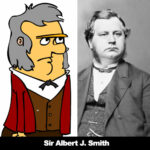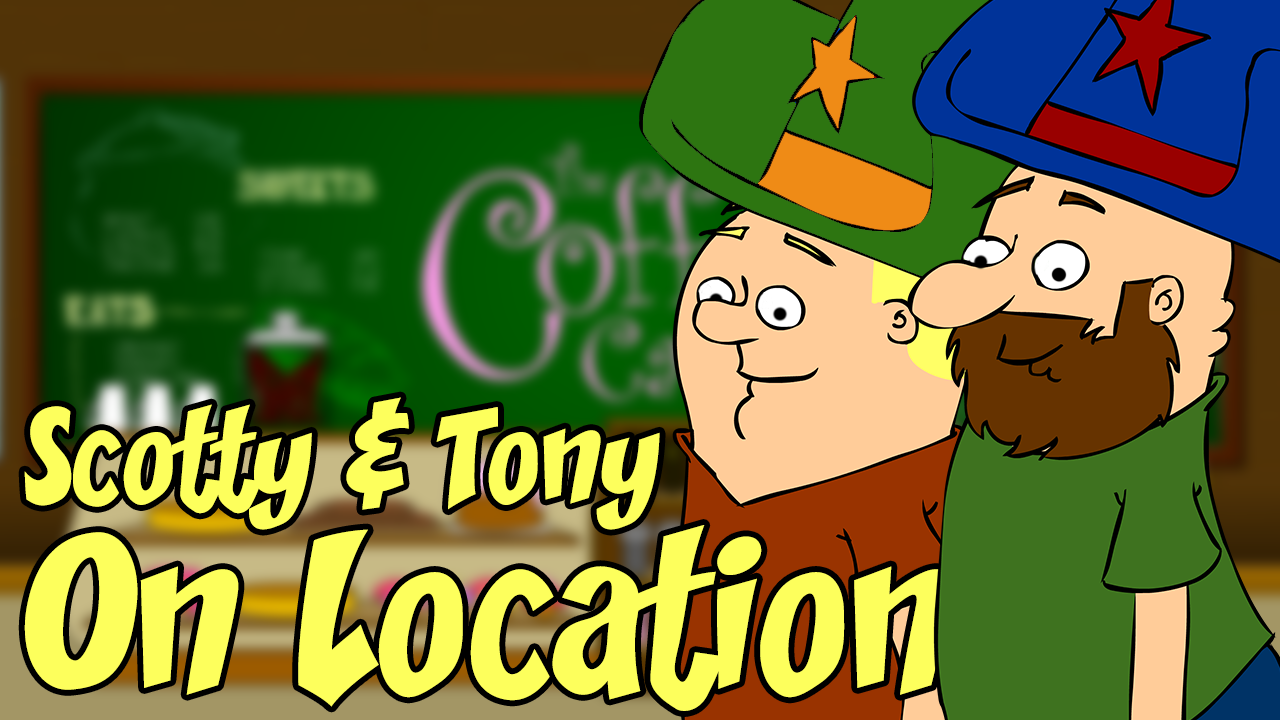
Why does the past matter?
- Rhonda Bulmer
- September 23, 2017
- Animation, Writing
- The Anti-Confederate
- 0 Comments
I once pitched a full-length movie idea about New Brunswick historical politician Albert J. Smith to producers at a screenwriting boot camp a few years ago. The response was ironic (beyond the obvious—that historical movies are too expensive), especially given the subject matter. “It’s not a national story,” they said.
Excuse me? Not a national story? How Smith represented the masses against John A. MacDonald, and the wishes of the Crown, and held back Confederation for a year because he knew the deal wasn’t good for New Brunswick—that’s not a national story?
“Maybe you should try a little documentary for a provincial audience,” a national producer suggested.
Perhaps it was just a matter of tweaking my story pitch, but the message I heard was that the Maritimes doesn’t matter to the rest of the country any more today than it did 150 years ago. Is it possible that we’re not really a country, but simply a series of regions, connected by a piece of a paper and consumed with regional interests?
John A. MacDonald was the chief architect of the 72 resolutions, and succeeded in avoiding an American-style federalist union, but to this day, every region outside of central Canada resents its lack of power.
Which brings us back to the present. We had no luck securing interest or funds for a one-hour documentary, so this year, on this momentous 150th anniversary, my husband and I decided to do an animated, short film on our own. (See Part One here: https://youtu.be/aei7M4Bc2zI)
A little ambitious, perhaps. But the internet is a democratic institution when it comes to entertainment. Why wait for permission?
The Drive-Through Province
Growing up in New Brunswick, the sense that we were a second-class region and that life must be so much better everywhere else hung over everyone I knew. My brother, my aunts, uncles, and cousins moved West and made their lives elsewhere. Here, the best job was a government job.
The narrative was that New Brunswick (and the Maritimes in general) was beautiful cottage country, but not a place to make a real, full-time life. We were too dependent on dying natural resources, seasonal work, and the federal teat. Was it because we were lazy? Were we too comfy with the status quo and simply incapable of change?
Who’s Albert Smith?
Our interest in Westmorland County politician Albert James Smith began in the 1990s, when my husband and I, along with a group of volunteers, purchased his home in the tiny (and once influential) village of Dorchester, from the provincial government. We raised money over several years to partially restore the building and we used it for charitable purposes.
But as we learned more about Smith’s forgotten contribution to provincial politics in New Brunswick—and post-confederation in Ottawa—we became convinced that New Brunswick’s political past affects our fortunes in the here and now, in ways we don’t fully appreciate.
Part of the problem lies with Ontario-centric historians, who tell Confederation from Central Canada’s point of view. Very few modern Maritimers understand that Confederation was neither needed nor wanted by our forbears. It was proposed by John A. MacDonald and other central Canadians because Quebec and Ontario were in a deadlocked constitutional crisis. Great Britain wholly supported the idea of union, because they simply couldn’t afford to defend or oversee the colonies anymore. We were basically railroaded (pardon the pun) into confederation, and from that moment, the door closed on our Golden Age. The Age of Central Canada had begun, except that historians claim that the decline that followed in the Maritimes is largely our own fault.
Consider this 1963 quote from historian Carl Wallace, in the Canadian Historical Review. “As the depression of the 1880s crushed what remained of the old way of life, people began to cast yearning glances into the great age of the 1850s and the 1860s. Smith may have attributed the decline of New Brunswick to Confederation. Many of the evils he predicted in 1864 and 1865 had materialized, one of the reasons it is still argued in the Maritimes that Confederation caused the fall. Geographic location, industrialization, and the transportation revolution, these are the real explanation, but they make poor myths.”
I asked Donald Savoie, Canada research chair in public administration and governance at the Université de Moncton, what he thought of this quote. His response was immediate.
“Well, he’s right on geography, but he’s wrong about everything else,” he said, with a snort. “National policy did us in. Is Wallace going to tell us that the Autopact did not help Ontario? That’s a government policy. Is Wallace going to tell us that Bombardier exists because of the entrepreneurs in Quebec and not national policy? I could go on.”
Savoie believes that in return for our position as a so-called honest broker in the constitutional quarrel between Canada East and West, we received money in the form of transfer payments.
“It’s kind of a form of guilt money. To make Central Canada feel better they send us transfer payments, but it created a dependency that we’re living with now. And it also helped the [market in Quebec]. Funds would flow back to help buy cars built in Ontario and fridges built in Ontario. So it’s much too simplistic for Wallace to say, well, the problem is Smith had it right, but he’s wrong. It’s not just geography, geography’s part of it, but we had markets in the West Indies…it was much easier for a business person to ship products to New York, England, the West Indies, than to Toronto. It doesn’t make sense, does it?”
As a writer, this story percolated in me for many years, and culminated in my desire to write a movie that focused on Smith’s tumultuous, anti-confederate government that lasted only one year, and culminated in betrayal by Lt. Governor Arthur Hamilton Gordon. Gordon broke the law when he reached beyond his purview regarding responsible government, and thereby precipitated another election in 1866 which ended in anti-confederate defeat.
In his new book Looking for Bootstraps—Economic Development in the Maritimes (Nimbus, 2017), Savoie states that funds provided by John A. Macdonald to Samuel A. Tilley for the 1866 election was meant to buy votes—and other unlucky coincidences played a role in his win.
“Smith would lose the election to pro-Confederation candidate Sir Leonard Tilley, who has the strong backing of the Colonial Office—no small advantage in 1866. He received from Sir John A. MacDonald $5,000 to bribe voters and persuade the undecided. Luck also intervened on Tilley’s side. The Fenians launched raids on the Maine-New Brunswick border precisely at the time Smith and Tilley, with Gordon’s help, were crossing swords over the merit of Confederation. The raids considerably weakened anti-Confederation forces in the region, making the case that New Brunswick needed outside help to protect its border through a strong central government.”
By getting rid of Smith, Gordon broke the anti-confederate movement in New Brunswick and paved the way for Confederation in 1867. There were many parts of the agreement that were unfavourable to the Maritimes, but MacDonald was not interested in re-opening discussions once the agreement went to London.
Why does it matter?
Our conclusion is that New Brunswick (and the Maritimes) once enjoyed a Golden Age, and we see no reason that, given the right conditions, we couldn’t enjoy another one.
The question is, what do those conditions need to be?
We hope our short film will be thought-provoking. We want to educate you, spur debate, and maybe those conversations might produce a solution or two. We need them!
But for now, we raise a glass to Smith, for being ambitious, honest, and a tough negotiator. He showed tremendous foresight and tried to come up with a better deal, but the cards were stacked against him. Nevertheless, he was not afraid of conflict, and he fought for his region until the end. We are sorry history has forgotten him because he fought on the losing side.
Cheers, and Happy 150th anniversary.




